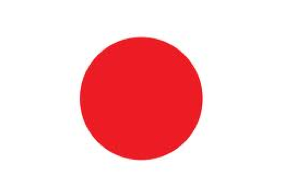The UNFCCC Secretariat has announced that Japan is the 47th Party to formally submit its intended nationally determined contribution (INDC), which sets out a reduction target of 26% by fiscal year (FY) 2030 compared to FY 2013 (25.4% reduction compared to FY 2005).
This reduction equates to approximately 1.042 billion tons of carbon dioxide equivalent (CO2-eq) as 2030 emissions, according to the INDC.
 20 July 2015: The UNFCCC Secretariat has announced that Japan is the 47th Party to formally submit its intended nationally determined contribution (INDC), which sets out a reduction target of 26% by fiscal year (FY) 2030 compared to FY 2013 (a 25.4% reduction compared to FY 2005). This reduction equates to approximately 1.042 billion tons of carbon dioxide equivalent (CO2-eq) as 2030 emissions, according to the INDC.
20 July 2015: The UNFCCC Secretariat has announced that Japan is the 47th Party to formally submit its intended nationally determined contribution (INDC), which sets out a reduction target of 26% by fiscal year (FY) 2030 compared to FY 2013 (a 25.4% reduction compared to FY 2005). This reduction equates to approximately 1.042 billion tons of carbon dioxide equivalent (CO2-eq) as 2030 emissions, according to the INDC.
Japan’s target covers the energy, industrial processes and product use, agriculture, land use, land-use change and forestry (LULUCF), and waste sectors, and the following gases: carbon dioxide (CO2), methane (CH4), nitrous oxide (N2O), hydrofluorocarbons (HFCs), perfluorocarbons (PFCs), sulphur hexafluoride (SF6), and nitrogen trifluoride (NF3).
Noting that Japan is a leader among developed countries in high energy efficiency and low emissions intensity, and that the country faced significant energy challenges in the aftermath of the Fukushima disaster, the INDC sets out the measures the country plans to undertake to achieve the domestic emissions reductions, as well as its intent to provide technological and other support for developing countries.
The INDC includes a section on its assumptions and methodologies, explaining that, inter alia: removals from the LULUCF sector are calculated using approaches like those under the Kyoto Protocol; the amount of emission reductions and removals acquired by Japan under the Joint Crediting Mechanism (JCM) will be appropriately counted as Japan’s reduction; and the methodologies are subject to change as international negotiations progress on estimating and accounting rules. The INDC does not address adaptation.
All Parties to the UNFCCC are expected to submit INDCs in advance of the Paris Climate Change Conference, which will take place in November-December 2015. Those submitted by 1 October 2015 will be included in a synthesis report on their aggregate effect by 1 November 2015. Parties are anticipated to agree on a global climate change agreement to take effect in 2020 at the Paris Climate Change Conference. [UNFCCC Press Release] [Japan’s INDC] [UNFCCC INDC Portal]